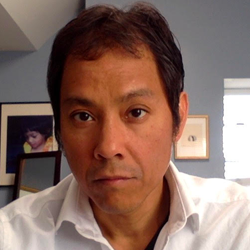
This is in response to Professor Walden Bello's piece that was posted on June 1, 2019: [OPINION] Defending academic freedom from political extremism

Dear Professor Bello,
As a member of the U.S. academic community who signed the petition circulated several weeks ago regarding Lisandro Claudio’s hire, I feel called to respond to your defense of said person’s academic freedom; and the allegation that I and my fellow signatories were “seduced by a scurrilous petition authored by political forces external to the university...who are contemptuous of academic freedom and are determined to hijack a great university’s hiring process....”
I signed the petition without knowing the author or authors’ identity/identities. As for Professor Claudio, I know him hardly at all: we met once at a conference several years ago, and did not share any interaction or correspondence following the event. This is to say that, while we are anything but friends, he is certainly not my enemy.
I signed the petition on the content of the argument and the supporting evidence that Professor Claudio’s identification of students and student groups as extremist exposed them to added surveillance and possibly danger, given the current breakdown in the administration and enforcement of laws and individual rights and freedoms in the Philippines under the current government. That this allegation has come from students themselves raised an ethical concern that, I imagine, was shared by many colleagues who also signed the petition.
How does this allegation measure up against the defense that the said candidate is simply exercising his academic freedom, as you say, and should not be censured or targeted for doing so? I can’t pretend to know with certainty the answer to this question. But I can tell you what brought me to consider the question in the first place.
When I was last in the Philippines (last January-February), people were protesting police impunity, in response to a 12-year-old boy who was taken out of his home in Caloocan City and shot by police without resisting arrest, in front of cameras, for allegedly being a drug pusher. You probably remember the government’s immediate response: far from denouncing the atrocity, many senators began to openly debate advancing a bill that would allow police to shoot anyone over 9 years old on suspicion of criminal activity, without trial. (READ: Who's afraid of a Filipino peti-liberal?)
Like me, you may have had the occasion to wonder: Does this count as the administration of law? How do police know whether a typical citizen is a criminal? Or a child? Who tells them? What if the accusation is false or misleading? How can one know if the police are right or wrong? Does anything happen if they are wrong? What are laws and freedoms in a state of impunity?
As a faculty member who regularly invokes the principle of academic freedom and tenure as the only protection scholars have to ensure our safety in the pursuit of truth, and as a U.S. citizen who respects and values the freedom of speech as a principle enshrined in our Constitution, I did not sign the petition without careful consideration.
If I and my colleagues are to be blamed for not having done the proper research to discover the ideological leanings of the author/s, the ideological debates that inspired or fueled this confrontation, the ideological consequences of opposing the right of someone to call out students and render them vulnerable, I can only remind you, as one teacher to another – without pretending that my accomplishments and struggles compare in any way to the life of principled struggle and scholarship I have witnessed from you over the course of many years – that alongside our vocation to tell the truth on the basis of what our research suggests, we also have an obligation to protect our students, students in general, from harm.
We engage our students with the ideas we have developed over the course of our study and research; but we also concern ourselves with their safety and welfare, even at times despite our own beliefs or opinions. I ask again: How does the obligation to uphold one principle measure against the other? In the vacuum of accountability in which the freedom of one person has come to directly impinge upon the life and freedom of another, or others, it is indeed a tragedy that the immediate consequences of our opinions and ideas have become so immediately drastic, and uncontrollable.
If you can agree with me that this is so, and if you can also agree with me that the current social breakdown in the rule of law has weaponized the exercise of certain freedoms in the service of state repression and censorship, then I believe you can also understand why I and many of my colleagues would dare to voice concern on an issue that otherwise appears to fall outside our sphere of academic research.
Our concern, to reiterate, has little to nothing to do with his academic credentials (which I am sure the faculty of any given college or university are more than capable of evaluating), but rather with the use to which they have been put. As I anticipate that I will be asked not to speak publicly on this issue in the future, I apologize in advance for not being able to entertain your response.
Respectfully,
Jody Blanco
– Rappler.com
Jody Blanco is a scholar and teacher. He has taught at the University of the Philippines-Diliman and Ateneo de Manila University, and currently lives in San Diego.
Editor's note: Leloy Claudio has a show on Rappler, "Basagan ng Trip."